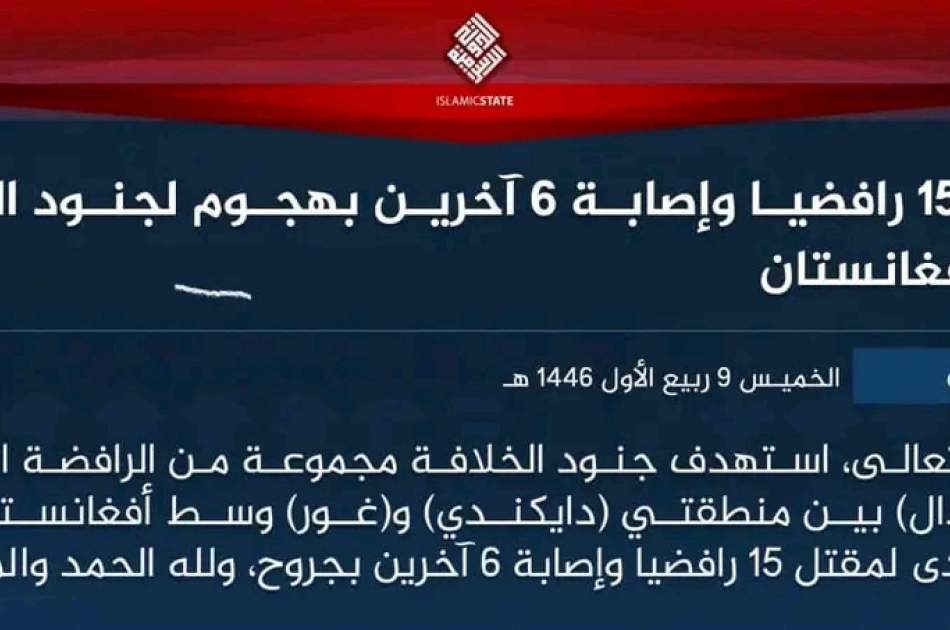Ghulam Ali Sarem/ This is the image of ISIS's declaration, in which Shiites are addressed not by the word Shia but by false titles and are called apostates. This crime is the result of the fanatics' ignorance, and if they were aware of the minutes of fatwas in Islamic religions, they would not have engaged in this brutal killing and the publication of such announcements.
Publish dateSaturday 14 September 2024 - 09:07
Story Code : 296794
Afghan Voice Agency (AVA): Regarding the excommunication and apostasy of followers of famous and famous Islamic schools, both Shia and Sunni, according to the majority of scholars of any religion, there is no clear Qur'anic reason, no consensus of scholars, and no unanimity based on the Sunnah. .
It is a famous opinion of Imam Abu Hanifah that takfir of the people of Qibla is not permissible.
Other schools of thought, including Shafi'i, Maliki, and Hanbali, have a similar opinion about takfir and apostasy.
The Shia religion also has the honor of not ascribing takfir and apostasy to the followers of famous Islamic schools, and in this regard, it has strict ijtihad criteria.
Imams and great Sunni jurisprudents, even in cases where common accusations against other religions have been referred to them and appealed to them, they have considered those false accusations to be a reason for debauchery, not disbelief, on the assumption that they are correct, and they have emphasized the negation of bigotry in religion. have
The caution of the scholars in the discussion of takfir and apostasy is so great that this sentence is famous in the discussion of qadha that if there are 99 reasons for someone's disbelief and one reason for his Islam, the mufti should consider him a Muslim with this one reason, because his mistake is to eliminate it. A person is better than his mistake in punishing that person.
Instead of following the consensus of scholars and well-known sayings, the terrorist, hired and mercenary group of ISIS follows the example of the unknown writers of the Salaf and the sayings against the consensus and makes it a tool for brainwashing its followers.
It is a famous opinion of Imam Abu Hanifah that takfir of the people of Qibla is not permissible.
Other schools of thought, including Shafi'i, Maliki, and Hanbali, have a similar opinion about takfir and apostasy.
The Shia religion also has the honor of not ascribing takfir and apostasy to the followers of famous Islamic schools, and in this regard, it has strict ijtihad criteria.
Imams and great Sunni jurisprudents, even in cases where common accusations against other religions have been referred to them and appealed to them, they have considered those false accusations to be a reason for debauchery, not disbelief, on the assumption that they are correct, and they have emphasized the negation of bigotry in religion. have
The caution of the scholars in the discussion of takfir and apostasy is so great that this sentence is famous in the discussion of qadha that if there are 99 reasons for someone's disbelief and one reason for his Islam, the mufti should consider him a Muslim with this one reason, because his mistake is to eliminate it. A person is better than his mistake in punishing that person.
Instead of following the consensus of scholars and well-known sayings, the terrorist, hired and mercenary group of ISIS follows the example of the unknown writers of the Salaf and the sayings against the consensus and makes it a tool for brainwashing its followers.
avapress.net/vdcgy39xtak9yu4.5jra.html
Top hits







